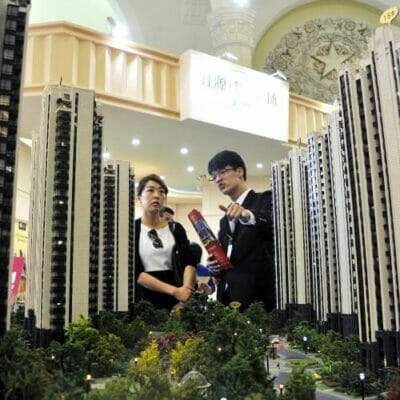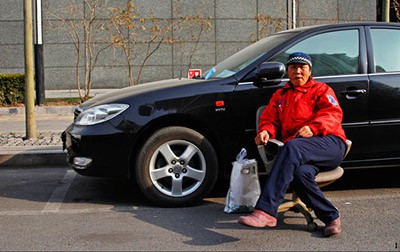
Home prices are cooling in many cities, but finding affordable parking may be an issue
Beleaguered home buyers in China’s largest cities look like they’ve caught a break this year, as average housing prices in Beijing slid 0.1 percent in July and subsided by 0.2 percent in Shenzhen after growing more than 40 percent last year, according to government statistics.
Unfortunately for any residents thinking of rushing out to buy a new home, their more affordable apartment is likely to now come bundled with a parking space that could add 40 percent or more to the cost.
The bundled parking tariffs come after Chinese authorities began capping home prices in many of the country’s largest cities, encouraging developers to find new ways to profit from the mainland’s housing-hungry population.
Developers Stay Ahead of Home Purchase Restrictions

Home buyers can take some comfort in knowing their pricier car park carries the usual commitment to service
A sudden surge in prices for mandatory parking spaces began in first-tier cities such as Shanghai and Beijing in recent years as government purchase restrictions began to dictate selling rates for new homes, and has now spread to lower tier cities where the government has stepped in to dictate home prices this year.
In second tier hubs such as Suzhou and Tianjin, some home buyers are forced to pay up to RMB 1 million ($151,821) for car parking spaces when they purchase apartments worth as little as RMB 2.4 million, according to a recent report by Reuters. The news agency quotes a Shanghai-based developer that acknowledged it is bundling the parking spaces with new apartments as a package deal, to make up the shortfall in profits caused by the home price limits.
The unidentified developer recently sold parking spaces in the port city of Xiamen for over RMB 1 million, up from less than RMB 200,000 last year. Some of China’s biggest home builders appear to be taking advantage of the regulatory end run, with China Vanke having sold parkings spots in Xiamen for up to RMB 750,000, and Poly Real Estate charging RMB 500,000 for parking spaces packaged with small-sized flats in the same city, according to official data cited in the report. Vanke, the country’s second-largest developer, indicated that parking spaces in its project were not bundled with apartments and that prices were set by the market.
Meanwhile, in Tianjin, prices for parking spaces have surged from around RMB 100,000 to more than RMB 350,000 this year, at the same time that bundling of parking spaces with apartments has also surged in the northeastern port city, according to a property sales manager cited by the news agency.
Shanghai officials announced measures in late July to prohibit bundling of parking spaces with apartment sales, but regulators in other cities have been slower to act.
Paying Top Dollar for Bathroom Tiles
Developers have also attempted to skirt home price caps through side agreements with home buyers that ostensibly cover decoration services. These grey-market “decoration contracts” enable developers to hide a portion of their profits from authorities, as the contracts aren’t vetted in the official registration system for real estate transactions.
China began cracking down on the practice in May, by setting up new guidelines in the central city of Wuhan capping decoration fees at RMB 5,000 ($735) per square metre for homes costing at least RMB 30,000 per square metre. Similar rules were reportedly rolled out in the cities of Nanning and Foshan the following month, according to an account in Caixin.
Price Controls Are Working, Technically
Chinese authorities have sought to rein in the country’s worsening housing bubble by introducing a series of cooling measures in dozens of cities beginning this past March. The policies have ranged from tighter home purchase restrictions and higher down-payment requirements, to municipal officials simply dictating how high prices are allowed to go.
The crackdown continued to weigh on home prices in July, with new residential prices in China growing at the slowest pace since last August. In the first-tier cities of Beijing and Shenzhen, as well as Nanjing, new home prices fell month-on-month, while prices remained unchanged in Shanghai and Hangzhou.
Leave a Reply